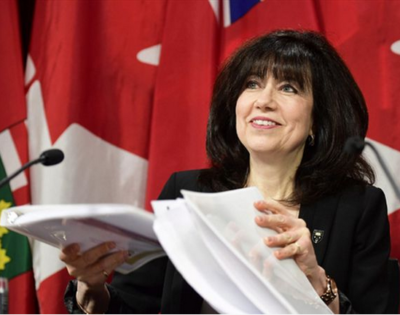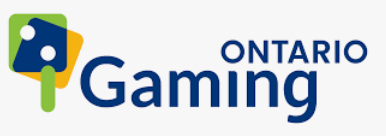 By Pierre Garner
By Pierre Garner
January 21, 2022
BURLINGTON, ON
Towards the end of last year, the office of the Auditor General in Ontario released a report highlighting the possible legal issue that might arise from the proposed online gaming model. The model is aimed at the privatization of the iGaming industry, which has been under the wing of the Provincial government.

Ontario Auditor General Bonnie Lysyk
In the 15-page report, “Internet Gaming in Ontario,” Ontario Auditor General Bonnie Lysyk puts to question three major issues; the legality of the model in light of the Criminal Code, the integrity and fairness of a privatized iGaming market in Ontario, and the provincial governance structure of internet gaming.
However, the report has received a lot of criticism, especially from industry folks with vested interests. In response, the office of the Auditor General has noted that it is not against the idea of having a regulated iGaming market. Its only concerned is the technical legalities of the proposed model.
“Ontario remains committed to launching a competitive internet gaming market to help protect its consumers. The province has already designed the online gaming model to achieve this objective in compliance with the Criminal Code,” wrote Natasha Krtajic, the parliamentary advisor and press secretary of the Attorney General.
Background Info on the Status Quo
To understand the allegations made in Lysyk’s report and the reason for criticism, we need to first comprehend the proposed enhancement to the present Ontario online gaming offerings.

PROLINE+ the sole provincially operated legal provider of online gaming services in Ontario.
Currently, Ontario Lottery and Gaming Corporation, a province-run entity, is the sole legal provider of online gaming services in Ontario. This corporation runs the only legal online bookmaker in the province, PROLINE+.
In light of the Ontario online gaming model, the government has appointed the Alcohol and Gaming Commission of Ontario and its subsidiary, iGaming Ontario to vet and review applications made by private online casinos and sportsbooks operators.
According to the president of the Canadian Gaming Association (CGA), Paul Burns, it’s speculated that the iGaming market in Ontario will be opened up to the private sector by the close of the first quarter of 2022. CGA happens to be the national trade association representing top suppliers and operators in Canada’s eSports, sports betting, lottery, and gaming industries.
With the biggest betting events (Super Bowl and the Winter Olympics) around the corner, the pressure to open up the market for private operators is mounting on Ontario’s government. Fortunately for punters, there are already some online casinos that operate in Ontario as stated by Online-Casino.com.
A Breakdown of the OAG’s Report
According to the report, the government’s plan to privatize the market presents several legal problems. These problems are noted as follows:
Delegation of Decision-Making Powers
The proposed model is designed to pass business risk and decision-making power to private operators. According to the OAG’s report, this delegation of responsibility might fail to satisfy the “conduct and manage” requirements on commercial gambling. The provincial governments are tasked with the responsibility of safeguarding these requirements under the Criminal Code.
“The issue of whether the provincial government has illegally delegated its “conduct and manage” mandate in commercial gaming to a private operator has been a recurring legal subject in Canada,” the report reads.
The Regulatory and Governance Risk
Lysyk mentions that the function of a regulator is different from that of an operator. She also notes that there is an overlap in involvement between the province regulator and the operators in terms of internet gaming in the current situation. That being the case, Lysyk writes that “the model or vehicle itself is what we consider a problem.”
 To address the problem, the report recommends that the Ministry of the Attorney General transfers the operating and governance responsibilities of the iGaming Ontario from AGCO, its parent entity. The report further suggests that should iGaming Ontario’s business model meet the “conduct and manage” requirements, its reporting relationship with AGCO should be transferred.
To address the problem, the report recommends that the Ministry of the Attorney General transfers the operating and governance responsibilities of the iGaming Ontario from AGCO, its parent entity. The report further suggests that should iGaming Ontario’s business model meet the “conduct and manage” requirements, its reporting relationship with AGCO should be transferred.
The IGO’s Governance Structure Poses a Potential Problem
The Auditor General expressed concerns that the entity is not well-structured to verify and ascertain the integrity and fairness of games. The report recommended that the IGO inform the Legislature on how it plans to address the issue of integrity and fairness before launching the iGaming market.
In rebuttal, through the Ministry of the Attorney General, the government insisted that the AGCO has well laid out standards for the iGaming market – inclusive of integrity concerns. All online games will have to be third-party tested and certified by an independent lab, and the AGCO has its iGaming Compliance Unit for compliance oversight purposes.
Lysyk’s Response to Criticism on the Report
CGA’s president and CEO, Paul Burn, dismissed the OAG’s report as a mare opinion when recently commenting to The Parleh. When asked about the industry pushback that the report has been receiving, Lysyk challenged the idea that the report’s content is just an opinion.
She holds that what was outlined in the report was nothing but solid facts that have been vetted for accuracy.
“We have no vested interest in the outcomes of this agenda. Our position is unbiased, independent, and objective of the benefits of iGaming in Ontario. The report is factual and free from vested interest,” noted Bonnie Lysyk.
The Auditor general’s office is not oblivious to the benefits of having a regulated privatized iGaming market in Ontario. No. The benefits are difficult to argue against. The report was not suggesting that the model lacks economic legs.
By viewing the report objectively, it becomes clear that what the office of the Auditor General was trying to say is, “We are not completely sure and confident as to how you want to go about this.”
“Our point is that at this point, there are several issues that we need to identify and address. At the end of the day, the iGaming revenue will provide additional revenue for social services such as health. We are not saying that the iGaming market is a bad thing. All we did was question the integrity of the model and how our consumers will be protected once the market launches,” noted the OAG.

On-line gambling has grown significantly – it is now a very big business. Fair and reasonable regulation should be in place.
Bottom Line
Lysyk is completely aware that big money will always remain a big topic. Noting that the report’s biggest critics are individuals who have heavily invested in anticipation for the new market, she requests them to remain objective and conscious of consumer interests.














